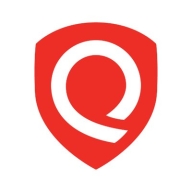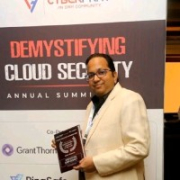

Qualys Web Application Scanning and GitGuardian Platform are prominent in web security and secrets detection. Qualys stands out for its robust scanning features, while GitGuardian is favored for its real-time secret detection capabilities.
Features: Qualys provides extensive API integration, automation capabilities with tools like Selenium IDE and Burp Suite, and includes zero-day vulnerability protection with clear reporting. GitGuardian offers real-time secret detection, the "Dev in the loop" feature for fast developer feedback, and minimal false positives.
Room for Improvement: Qualys needs improvements in user interface complexity, false positives reduction, and licensing model explanations. GitGuardian could enhance user management, improve efficiency in incident resolution, and address Azure DevOps integration issues.
Ease of Deployment and Customer Service: Qualys supports flexible deployment across various clouds but may lack personalized support experiences. GitGuardian is reliable on public and private clouds with strong customer service ratings, although Azure DevOps support could be better.
Pricing and ROI: Qualys is often seen as expensive with a complex licensing model but offers ROI through automation. GitGuardian is reasonably priced for smaller teams with a straightforward pricing model, although potentially burdensome for larger teams. Both present strong ROI with different pricing strategies, offering discounts and a generous free tier, respectively.
I can certainly say that we have saved significant time and resources in terms of people and automation.
The majority of our incidents for critical detectors and important secret types are remediated automatically or proactively by developers through GitGuardian's notification system, without security team involvement.
It effectively helps us with credentials security and has been performing satisfactorily.
I would rate their technical support a nine out of ten.
I would rate the technical support as excellent.
They have various options in the vulnerability management process, and when we initially bought our license, we didn't realize we needed PCI for better results, which isn't included in the default configurations.
Once we purchase the license, we have access to top-notch support.
I have dealt with Qualys's technical support, and any enhancements are challenging.
In terms of scalability, I would rate it around a ten out of ten, as it handles all the repositories and commit activity we have.
I would rate it a ten out of ten for scalability.
Currently, what GitGuardian Platform is doing works effectively.
My concern remains the lack of deep dive analysis and that it produces similar vulnerability results as other tools such as Nessus based on version checks instead of real impact checks.
It is licensed for assets, so we just contact the team for additional licenses if needed.
At one point, there was a limitation on reporting for 100,000 assets at a time.
We set up a lot of the repository, so GitGuardian is a required check.
The SaaS platform has experienced two significant moments of downtime or instability in the last six months, requiring notices and retrospectives.
I would rate the stability of the GitGuardian Platform as excellent with no downtimes.
Another thing that would be good to see is some more metrics on the usage of the GitGuardian pre-push hooks.
The self-healing activity by developers isn't reflected in the analytics, requiring us to collect this data ourselves.
We are looking for better metrics and audit data, wanting more features such as knowing which users are creating the most secrets or committing the most secrets, what repository, what directory, and who is not checking in secrets.
With the growing reliance on AI, Qualys Web Application Scanning should be updated to handle AI-based applications and LLM-based attacks.
Qualys Web Application Scanning does IP-level testing, requiring direct input of credentials, and can only scan a few pages to provide known generic vulnerabilities.
I would like it to be cheaper because it is a bit expensive compared to competitors like Tenable Nessus.
Overall, the secret detection sector is expensive, but we are happy with the value we get.
It's fairly priced, as it performs a lot of analysis and is a valuable tool.
They offer discounts on bulk licenses, making it cheaper compared to competitors like Veracode DAST.
I find it a bit expensive compared to other competitors.
Regarding pricing, I think for personal use, it is costly, but if organizations are ready to pay, then it is fine as they are using it.
One of the best features of the solution is the ability to use pre-push hooks.
A high number of our exposures are remediated by developers before security needs to step in, as the self-healing playbook process engages them automatically.
GitGuardian Platform performs the capability to detect secrets in real time exceptionally, as it activates from the commit and can detect it immediately.
It effectively detects vulnerabilities like the OWASP Top 10 without any issues in reporting.
Credential scanning is very effective because it goes in-depth into the system, crawling the pages, and reporting on vulnerabilities.
Qualys Web Application Scanning is accurate and provides minimal false positives.
| Product | Market Share (%) |
|---|---|
| GitGuardian Platform | 1.1% |
| Qualys Web Application Scanning | 1.8% |
| Other | 97.1% |


| Company Size | Count |
|---|---|
| Small Business | 10 |
| Midsize Enterprise | 9 |
| Large Enterprise | 13 |
| Company Size | Count |
|---|---|
| Small Business | 8 |
| Midsize Enterprise | 6 |
| Large Enterprise | 27 |
GitGuardian is a comprehensive platform focused on enhancing Non-Human Identity security by integrating Secrets Security and Secrets Observability to detect and manage secrets across development environments.
As cybersecurity threats increasingly target NHIs like service accounts and applications, GitGuardian offers a robust solution by supporting over 450 types of secrets and deploying honeytokens for additional defense. Trusted by leading organizations and developers, its monitoring and quick alert system enable effective detection and management of sensitive data, strengthening operational security across platforms.
What are the key features of GitGuardian?In the tech industry, GitGuardian is employed to safeguard APIs and sensitive credentials across code repositories like GitHub. Companies benefit from instant alerts and integrations with tools like Slack, effectively managing risks and enhancing security policies. While popular in sectors dependent on development agility, there is room for further improvement in customization and integration to meet specific industry needs.
Qualys Web Application Scanning (WAS) is a fully cloud-based web application security scanner. The scanner will automatically crawl periodically and test web applications to discover potential vulnerabilities, including cross-site scripting (XSS) and SQL injection. The consistent testing equips the automated service to generate consistent results, lessen false positives, and offer the ability to scale to protect thousands of websites effortlessly.
Qualys Web Application Scanning is bundled with different scanning technology to carefully scan websites for malware infections and will send notifications to website owners to assist in preventing blacklisting and brand reputation damage. As digital transformation takes place in various organizations, Qualys WAS gives organizations the ability to track and document their web app security status through its interactive reporting capabilities.
Qualys WAS empowers organizations to remediate any web application vulnerabilities quickly. Some of the key tools offered are:
Benefits of Qualys Web Application Scanning
Qualys Web Application Scanning offers many benefits, including:
Reviews from Real Users
Qualys Web Application Scanning stands out among its competitors for a variety of reasons. Two of those reasons are its progressive scan and quick detection of vulnerabilities.
P.K., a senior software developer at a tech vendor, writes, "The feature that I have found most valuable is the progressive scan. It is good. It's done in 24 hours."
Nagaraj S., lead cybersecurity engineer at a tech service company, notes, "I have found the detection of vulnerabilities tool thorough with good results and the graphical display output to be wonderful and full of colors. It allows many types of outputs, such as bar and chart previews."
We monitor all Application Security Tools reviews to prevent fraudulent reviews and keep review quality high. We do not post reviews by company employees or direct competitors. We validate each review for authenticity via cross-reference with LinkedIn, and personal follow-up with the reviewer when necessary.